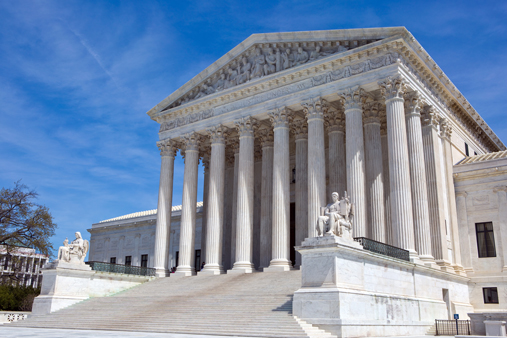In Lighting Ballast Control LLC v. Philips Electronics North America Corp. et al., No. 12-1014 (Feb. 21, 2014), the Federal Circuit upheld the de novo standard for appellate review of claim construction established in Cybor Corp. v. FAS Technologies, Inc., 138 F.3d 1448 (Fed. Cir. 1998) (en banc). In a sharply divided en banc decision, the CAFC concluded “that the criteria are not met for overruling or modifying the Cybor standard of de novo review of claim construction as a matter of law.” The Lighting Ballast ruling means that patent litigants receiving unfavorable claim construction rulings can continue to appeal such rulings to the Federal Circuit, assured that the Federal Circuit will review claim construction without granting any deference to the lower court’s construction of asserted patent claims.
The litigation stakes were high for the Lighting Ballast decision. Claim construction, as the process for determining the scope and meaning of the asserted patent claims, is typically the single most important issue in a patent-infringement case. A narrow construction of patent claims can lead to a finding of non-infringement, while a broad claim construction will more typically lead to a finding of patent infringement. On the other hand, a broad claim construction may lead to a finding that the patent is invalid in light of the prior art, where a narrow claim construction may establish that the patent claims are valid over the prior art. Claim construction, very often, is the dispositive issue in a patent-infringement lawsuit.
In Markman v. Westview Instruments, Inc., 517 U.S. 370 (1996), the United States Supreme Court ruled that claim construction was a matter of law for courts, not a factual matter for juries. In reality, however, claim construction often involves factual matters, such as the meaning of extrinsic evidence or testimony concerning whether a particular claim term has a specialized meaning. Many believe that a district court’s factual conclusions on such matters should be entitled to appellate deference. But in Cybor Corp. v. FAS Technologies, Inc. (1998), the Federal Circuit held that because claim construction is a matter of law as established in Markman, the court would review a district court’s construction of patent claims de novo. Based on Cybor Corp., the Federal Circuit would provide no deference to the lower court’s claim construction.
The non-deference provided to district courts’ claim constructions, and the corresponding rate with which the Federal Circuit has vacated or modified such constructions, has been one of the most controversial issues in patent litigation. The Lighting Ballast case presented an opportunity for the Federal Circuit to revisit the issue.
Lighting Ballast had asked the district court to construe the claim term “voltage source means.” In support of its proposed claim construction, Lighting Ballast presented testimony from an expert and the inventor. The district court ruled that the term should be given its plain meaning, as opposed to a specialized meaning based on the patent specification. Applying a de novo standard of review, the Federal Circuit reversed the district court’s claim construction, resulting in a finding of invalidity based on indefiniteness of patent claims.
Because the claim construction proceedings had involved extrinsic factual evidence (witness testimony), the case presented an excellent opportunity to revisit the issue of whether factual determinations involved in claim construction should receive a more deferential standard of review. Lighting Ballast filed a petition for rehearing en banc. The Federal Circuit granted the petition and asked the parties and amici to brief the issue of whether the Federal Circuit should depart from the de novo review standard from Cybor.
Lighting Ballast sought abandonment of the de novo standard of review, arguing that the Federal Circuit should grant deference to all aspects of a lower court’s claim construction and only reverse the claim construction if it was clearly erroneous. Another party, Universal Lighting Technologies, took the middle ground. Universal Lighting Technologies argued to largely maintain the de novo standard of review but to grant deference for any disputed issues of historical fact (e.g., whether a disputed claim term had acquired specialized meaning in the art) involved in the claim construction order.
Although many commentators took the Federal Circuit’s decision to rehear the case en banc as a sign that the Federal Circuit was prepared to modify or depart from its Cybor holding, the Federal Circuit declined to do so. The CAFC ruled:
On thorough review, we are not persuaded that discarding de novo review would produce a better or more reliable or more accurate or more just determination of patent claim scope. Those who urge change in the Cybor standard have identified no pattern of error, no indictment of inferior results. No ground has been shown for departing from the principles of stare decisis. Review of claim construction as a matter of law has demonstrated its feasibility, experience has enlarged its values, and no clearly better alternative has been proposed. There has arisen no intervening precedent, no contrary legislation, no shift in public policy, no unworkability of the standard.
We conclude that the criteria are not met for overruling or modifying the Cybor standard of de novo review of claim construction as a matter of law.
The dissent (Judges O’Malley, Rader, Reyna, Wallach dissenting) sharply criticized the majority’s rationale and ultimate refusal to deviate from the Cybor holding.
District judges, both parties in this case, and the majority of intellectual property lawyers and academics around the country will no doubt be surprised by today’s majority opinion—and for good reason. The majority opinion is surprising because it refuses to acknowledge what experience has shown us and what even a cursory reading of the Supreme Court’s decision in Markman v. Westview Instruments, Inc., 517 U.S. 370 (1996), confirms: construing the claims of a patent at times requires district courts to resolve questions of fact. And, it puts itself at odds with binding congressional and Supreme Court authority when it refuses to abide by the requirements of Rule 52(a)(6) of the Federal Rules of Civil Procedure, which expressly instructs that, on appeal, all “findings of fact . . . must not be set aside unless clearly erroneous.” It is also surprising because, having, for the third time, invited a broad swath of the intellectual property community to express opinions regarding the merits of Cybor Corp. v. FAS Technologies, Inc., 138 F.3d 1448 (Fed. Cir. 1998) (en banc), we now premise our refusal to change its holding on principles of stare decisis—that, and a professed inability to come up with a workable alternative to de novo review.
The implications of Lighting Ballast’s adherence to the Cybor decision are highly significant to patent litigants. The continued de novo review of claim constructions will serve as a continued incentive to appeal unfavorable claim constructions to the Federal Circuit. This incentive often plays a role in settlement discussions, and otherwise impacts the analysis of the costs and benefits of bringing and defending patent lawsuits. The de novo review standard has many proponents, such as those who feel the standard leads to more competence and consistency in claim construction, and many detractors, who feel the standard makes it more difficult and time-consuming to resolve infringement disputes. This may be yet another patent-infringement issue that the Supreme Court decides to take up.
For more information, contact the Barnes & Thornburg attorney with whom you work or member of the firm’s Intellectual Property Law Department in the following offices: Atlanta (404-846-1693), Chicago (312-357-1313), Columbus (614-628-0096), Delaware (302-300-3434) Elkhart (574-293-0681), Fort Wayne (260-423-9440), Grand Rapids (616-742-3930), Indianapolis (317-236-1313), Los Angeles (310-284-3880), Minneapolis (612-333-2111), South Bend (574-233-1171), Washington, D.C. (202-289-1313).
© 2014 Barnes & Thornburg LLP. All Rights Reserved. This page, and all information on it, is proprietary and the property of Barnes & Thornburg LLP. It may not be reproduced, in any form, without the express written consent of Barnes & Thornburg LLP.
This Barnes & Thornburg LLP publication should not be construed as legal advice or legal opinion on any specific facts or circumstances. The contents are intended for general informational purposes only, and you are urged to consult your own lawyer on any specific legal questions you may have concerning your situation.
Visit us online at www.btlaw.com and follow us on Twitter @BTLawNews.








/Passle/6488d4630e7e25c9ac9f834a/MediaLibrary/Images/2024-07-18-19-15-33-047-669969d52008239f764a11af.png)


/Passle/6488d4630e7e25c9ac9f834a/SearchServiceImages/2024-07-17-15-17-44-967-6697e0980752df56d2441ada.jpg)
